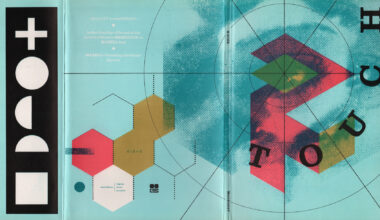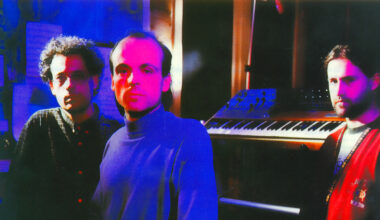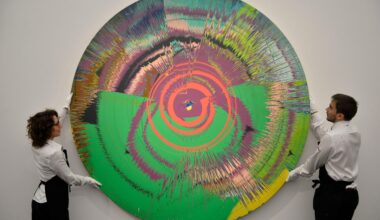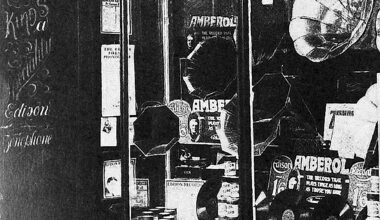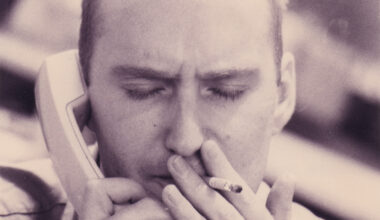In 1985, Miles Davis was offered free reign by his new record label. Those sessions remain unreleased expect for one track, electro synth funker ‘Rubberband’. it’s one of those what could have been moments…
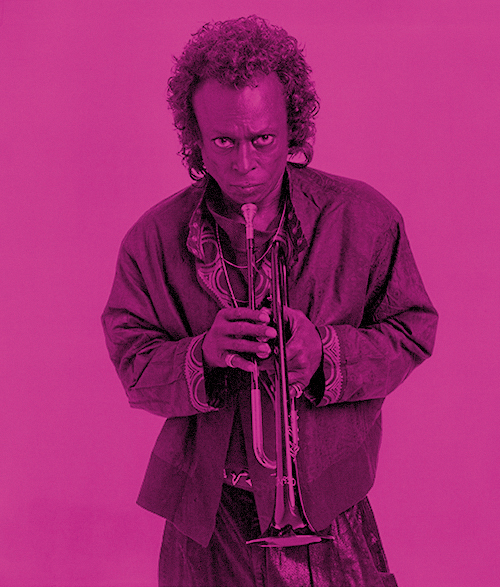
“The synthesiser has changed everything whether purist musicians like it or not,” wrote Miles Davis in his autobiography. “It’s here to stay and you can either be in it or out of it. I choose to be in it because the world has always been about change. People who don’t change will find themselves like folk musicians, playing in museums and local as a motherfucker.”
In 1985, Davis signed to Warner Bros. After 30 years at Columbia, he was itching to take his music in another new direction. He was handed a deal from label VP Tommy LiPuma that supposedly allowed him freedom to work with who ever he wanted.
He wasn’t little time as in his head was a funky, irrepressible synth-heavy tune that would become ‘Rubberband’. His chosen producer was Randy Hall, who had co-written his 1981 hit ‘The Man With The Horn’.
At the time, Hall was based at Ray Parker Jr’s Ameraycan Studios in north Hollywood with a young guitarist and producer called Zane Giles. From the outset it was clear Davis wanted to do something different. “He specifically said, ‘I don’t want to do no jazz – I’m sick of that’,” recalls Giles.
Prince was a huge influence on Davis and, during the sessions, he could often be found talking through a slew of ideas with Paisley Park HQ on the phone. There was also the small matter of ‘Rockit’, the phenomenally successful single by Miles’ old keyboard player Herbie Hancock. Hall and Giles set about recording a track that would offer a blistering riposte to ‘Rockit’.
“He wanted one of those instrumentals that had handclaps on it, with people in the background going, ‘Let’s party with Miles!’,” says Hall. “He wanted to put it on, and everybody would dance. A party record. That’s basically what ‘Rubberband’ is.”
Giles threw as much electronic kit as he could at ‘Rubberband’ to realise that vision.
“I used a Linn Sequencer, two Akai MD280s, a MiniMoog and a DMX drum machine,” he recalls. “Randy and I came up with the groove, and played it over the phone to Miles which was embarrassing. I’d rubbed my foot on the carpet and created a shock that caused the sequencer to lock up. He’s like, ‘What’s goin’ on?’. And I’m like ‘Sorry, give me two hours so I can reprogram this thing’.”
With the basic groove laid down, and with the addition of guitars by Hall, Giles and renowned jazz guitarist, Mike Stern, it then fell to Davis to deliver an especially lyrical trumpet line. On the track, his playing is effortlessly simple, funky and uncluttered. You also hear some wild synth stabs, all played by Davis on a PPG Wave.
“He really liked the sound of that keyboard,” says Hall. “The parts he played were supposed to be horns. He was hearing the music as if it was one of those New Orleans bands from way back. He didn’t sit up and figure this stuff out – he just played it on the fly. In between he’d whisper, ‘Rubberband, rubberband, rubberband’, like the chants that those marching bands used. I knew he was a genius, but you got to remember that he also had the horn in one hand while he was doing that stuff. He played it all the way through, no practice, no nothing.”
“I remember one time he laid his arms on the keys and we all stopped playing, because we thought we’d messed up,” adds Giles. “He was like, ‘What did you stop for?’. He literally just wanted to play all the black keys at once, so he put both arms on the keyboard.”
Miles Davis had a reputation for being a tough taskmaster in the studio, but Hall and Giles didn’t experience that when they were recording ‘Rubberband’.
“It was hilarious,” laughs Giles. “He’d pull up in his Ferrari while we were setting up, and say, ‘How much is this necklace I’m wearing?’. I was like, ‘Well, it looks like you got it from Kmart’…”
As incongruous as this might sound for a player with an irascible streak, the pair put it down to how much fun he was having, so much so that he was peppering his live sets with Ameraycan tracks that hadn’t even been properly recorded.
“He was on fire in those sessions,” says Hall. “Sometimes we would go to the studio and Miles would be there before us. That was a good thing – that let me know he was really into it. He would call me at night and say tell me what he liked about what we’d recorded, what he didn’t like, what he wanted to change.”
Aside from ‘Rubberband’, which has re-emerged on vinyl for Record Store Day this year, the other recordings from those sessions have languished, unreleased, in the Warner Bros archives. What emerged as his first Warners album was the atmospheric, synth-dominated but only occasionally funky ‘Tutu’. The blame for that lay squarely with Tommy LiPuma who had brought him to the label in the first place.
“When Tommy signed Miles, he had a dream about what he wanted to do with him as an artist,” shrugs Hall. “He wanted to cut a Tommy LiPuma-influenced Miles Davis record, which was ‘Tutu’. That’s all there is to it.”
Despite the disappointment, Giles remains sanguine about the experience.
“It was like working with Yoda, man,” he muses. “He’d tell me, ‘Zane, there’s no such thing as wrong music’. You got a guy who you can read about for the next hundred years that loved the first song I ever worked on with him. For me that’s a compliment in itself.”
Miles Davis’ vinyl-only ‘Rubberband EP’ is out on Warner Music/Rhino
